Edie Melson's Blog, page 394
November 21, 2014
Life Lessons—Sometimes Life REALLY Gets In The Way
by Bruce Brady @BruceDBrady
 Lately I’ve been feeling a lot of stress. This is nothing new to anyone who writes. But I mean a lotof stress.
Lately I’ve been feeling a lot of stress. This is nothing new to anyone who writes. But I mean a lotof stress.
Here is just a sampling:A honey-do list longer than Santa’s.Neighborhood problems that cause me concern for the safety of our residents, especially my wife.Two recall notices on my car.Trees that have grown so large their shade is killing my lawn. But the weeds love it.A hole in the bathroom wall screaming for attention.Four bedrooms, one hallway and one stairway that need carpets re-stretched.A sloped lot with extreme erosion issues and a budget that requires my doing all the work.A need to hand dig a trench and install a French Drain while nursing pulled back and chest muscles.Other health challenges that require extensive research and prayer.And just to make it interesting, I decided to write 50,000 words in 20 days.But enough about me. What do you think of my situation?
Truthfully, we all face a great deal of stress in our daily lives. Some put on us by circumstance, some by our own agendas. And if you’re like me, most stress does not make for good writing.
 So what can we do?
So what can we do?
At times like this, I turn to God. Experience has taught me that following His lead results in an overwhelming sense of peace. Then comes a better understanding of my situation, followed by clear direction, which most often includes rearranging my priorities. Even eliminating some.
Tips to Conquer an Overloaded Schedule1. Pray. If we don't start here, the rest is infinitely more difficult.2. Spend time really thinking about what you need to do versus what you think you should do,3. Enlist someone to help you decide what's best to cut and how to prioritize the list. 4. Find an accountability partner to help you stay on track.
After prayerfully reassessing my priorities I've come up with a game plan.
I need to make these changes:Make the honey-do list my top priority.Let God handle the neighborhood problems, and the safety of all concerned.Work as much as I can, when I can to remedy the yard challenges.Seek Godly counsel on how to best deal with my health concerns and allow others to join me in my prayer war.Drop the goal of writing 50,000 words in 20 days. When life gets in our way, we need to step back, take a fresh look at our to-do list and decide what’s most important. Some things may take more time than we planned, and some things must wait. Most importantly, God, health and family must be top priorities if we hope to have peace and productivity.
When life gets in our way, we need to step back, take a fresh look at our to-do list and decide what’s most important. Some things may take more time than we planned, and some things must wait. Most importantly, God, health and family must be top priorities if we hope to have peace and productivity.
As to my stress, God pointed out that my troubles began when I set my own agenda without first consulting Him. But He’s given me grace and an inner tranquility that doesn’t make sense—and I’m loving it. The Lord has assured me He will take care of the things I can’t change. And He will help me with those I can, as long as I start each day in conversation with Him, waiting for His direction.
In fact, this post is a good example of His showing me what to do and when to do it. The thought of meeting with my critique group today without a submission pressured me to cry out to Him. You’re reading the result.
What stresses are you facing now? How are you handling them? Be sure to share your thoughts in the comments section below.
TWEETABLES
Life stress adds to #writing stress - tips to cope when life gets in the way - via @BruceDBrady on @EdieMelson (Click to Tweet)
Tips to cope when life gets in the way - via @BruceDBrady on @EdieMelson (Click to Tweet)
 Bruce Brady is an author, writer and playwright. His work has appeared in Focus on the Family’s Thriving Family, www.ChristianDevotions.us, and on stage. Currently, Bruce is working on a Young Adult Novel about a boy who must deal with the death of his dad, being bullied, and helping his mom through her grief. His first five pages took third place in the ACFW South Carolina Chapter’s “First Five Pages” contest.
Bruce Brady is an author, writer and playwright. His work has appeared in Focus on the Family’s Thriving Family, www.ChristianDevotions.us, and on stage. Currently, Bruce is working on a Young Adult Novel about a boy who must deal with the death of his dad, being bullied, and helping his mom through her grief. His first five pages took third place in the ACFW South Carolina Chapter’s “First Five Pages” contest.
When he’s not writing, Bruce spends time learning from and helping other writers. He serves as Mentor of Word Weavers International’s Online Chapter, and as a member of Cross ‘N’ Pens, The Writer’s Plot, ACFW’s National and South Carolina Chapters.
“My dream is to entertain my readers and give them hope as they travel the rocky road of life.”
 Lately I’ve been feeling a lot of stress. This is nothing new to anyone who writes. But I mean a lotof stress.
Lately I’ve been feeling a lot of stress. This is nothing new to anyone who writes. But I mean a lotof stress.Here is just a sampling:A honey-do list longer than Santa’s.Neighborhood problems that cause me concern for the safety of our residents, especially my wife.Two recall notices on my car.Trees that have grown so large their shade is killing my lawn. But the weeds love it.A hole in the bathroom wall screaming for attention.Four bedrooms, one hallway and one stairway that need carpets re-stretched.A sloped lot with extreme erosion issues and a budget that requires my doing all the work.A need to hand dig a trench and install a French Drain while nursing pulled back and chest muscles.Other health challenges that require extensive research and prayer.And just to make it interesting, I decided to write 50,000 words in 20 days.But enough about me. What do you think of my situation?
Truthfully, we all face a great deal of stress in our daily lives. Some put on us by circumstance, some by our own agendas. And if you’re like me, most stress does not make for good writing.
 So what can we do?
So what can we do?At times like this, I turn to God. Experience has taught me that following His lead results in an overwhelming sense of peace. Then comes a better understanding of my situation, followed by clear direction, which most often includes rearranging my priorities. Even eliminating some.
Tips to Conquer an Overloaded Schedule1. Pray. If we don't start here, the rest is infinitely more difficult.2. Spend time really thinking about what you need to do versus what you think you should do,3. Enlist someone to help you decide what's best to cut and how to prioritize the list. 4. Find an accountability partner to help you stay on track.
After prayerfully reassessing my priorities I've come up with a game plan.
I need to make these changes:Make the honey-do list my top priority.Let God handle the neighborhood problems, and the safety of all concerned.Work as much as I can, when I can to remedy the yard challenges.Seek Godly counsel on how to best deal with my health concerns and allow others to join me in my prayer war.Drop the goal of writing 50,000 words in 20 days.
 When life gets in our way, we need to step back, take a fresh look at our to-do list and decide what’s most important. Some things may take more time than we planned, and some things must wait. Most importantly, God, health and family must be top priorities if we hope to have peace and productivity.
When life gets in our way, we need to step back, take a fresh look at our to-do list and decide what’s most important. Some things may take more time than we planned, and some things must wait. Most importantly, God, health and family must be top priorities if we hope to have peace and productivity.As to my stress, God pointed out that my troubles began when I set my own agenda without first consulting Him. But He’s given me grace and an inner tranquility that doesn’t make sense—and I’m loving it. The Lord has assured me He will take care of the things I can’t change. And He will help me with those I can, as long as I start each day in conversation with Him, waiting for His direction.
In fact, this post is a good example of His showing me what to do and when to do it. The thought of meeting with my critique group today without a submission pressured me to cry out to Him. You’re reading the result.
What stresses are you facing now? How are you handling them? Be sure to share your thoughts in the comments section below.
TWEETABLES
Life stress adds to #writing stress - tips to cope when life gets in the way - via @BruceDBrady on @EdieMelson (Click to Tweet)
Tips to cope when life gets in the way - via @BruceDBrady on @EdieMelson (Click to Tweet)
 Bruce Brady is an author, writer and playwright. His work has appeared in Focus on the Family’s Thriving Family, www.ChristianDevotions.us, and on stage. Currently, Bruce is working on a Young Adult Novel about a boy who must deal with the death of his dad, being bullied, and helping his mom through her grief. His first five pages took third place in the ACFW South Carolina Chapter’s “First Five Pages” contest.
Bruce Brady is an author, writer and playwright. His work has appeared in Focus on the Family’s Thriving Family, www.ChristianDevotions.us, and on stage. Currently, Bruce is working on a Young Adult Novel about a boy who must deal with the death of his dad, being bullied, and helping his mom through her grief. His first five pages took third place in the ACFW South Carolina Chapter’s “First Five Pages” contest.When he’s not writing, Bruce spends time learning from and helping other writers. He serves as Mentor of Word Weavers International’s Online Chapter, and as a member of Cross ‘N’ Pens, The Writer’s Plot, ACFW’s National and South Carolina Chapters.
“My dream is to entertain my readers and give them hope as they travel the rocky road of life.”
Published on November 21, 2014 01:00
November 20, 2014
Failure: Your First Step to a Writing and Speaking Ministry
by Vonda Skelton @VondaSkelton
Okay, I admit it. I’ve failed. Many times. But the good news is, God can take my messes and use them for His glory . . . if I let Him.
It all depends on what I do with my failures.
As writers and speakers, we can either work really hard to hide our frailties and present the illusion of perfection, or we can admit our struggles and present the answer to our need. Yes, our success as sharers of the Gospel can depend on what we do with our failures.I’m so blessed as a writer and speaker. I know that. God has given me more opportunities to speak and write than I ever imagined. And I know I don’t deserve it. But if I could be so bold, I hope you’ll hear from my heart when I say that I fully believe He has blessed my ministry because of my willingness to admit my failures, while also pointing to the answer for them.
 My first huge failure was in my marriage. And the first time God called me to speak was when He took me kicking and screaming into giving my testimony about that journey. Oh, I didn’t want to do it! I didn’t want the women of my church to know how I had treated Gary before they knew me. They saw me as a Godly Christian woman who loved the Lord with all her heart, and I wanted it to stay that way.
My first huge failure was in my marriage. And the first time God called me to speak was when He took me kicking and screaming into giving my testimony about that journey. Oh, I didn’t want to do it! I didn’t want the women of my church to know how I had treated Gary before they knew me. They saw me as a Godly Christian woman who loved the Lord with all her heart, and I wanted it to stay that way.
But God wouldn’t leave me alone, and I finally obeyed His call…and I came home from that event knowing what I had been created for!
Then He showed me how I had failed in His call to holiness, that I had adopted the world’s standards as my own, rather than follow His command to be like Christ. That message was soon shared with the women of my church, too…along with the prescription to use Philippians 4:8 as a filter verse for everything I allowed into my heart and mind, and out of my mouth.
 He took me to my struggles with pride, raising children, and taming my tongue. And every one of those topics became topics for me to speak and write about.And the process isn’t limited to non-fiction. Many of my own areas of sin have ended up in my novels and my current work-in-progress: lying, manipulation, anger, and unforgiveness.
He took me to my struggles with pride, raising children, and taming my tongue. And every one of those topics became topics for me to speak and write about.And the process isn’t limited to non-fiction. Many of my own areas of sin have ended up in my novels and my current work-in-progress: lying, manipulation, anger, and unforgiveness.
So, do you want to have more opportunities to write and/or speak for Him? Admit your failures. After all, we’re in good company. Consider what Paul said in Romans 7 (and I paraphrase here), “Oh, I don’t know why I do the things I do! I don’t do what I know I should do, and I do what I know I shouldn’t do! I want to do right, but I keep doing wrong! Oh, what a wretched man I am!” If Paul could voice his struggle, don’t you think we should, too?
Perhaps He’s calling you to admit your failures…and then point to the only answer for them.
It could be God’s ticket for your ministry.
What about you? Can you find success—however large or small—through your failures?
Don't forget to join the conversation,Vonda
TWEETABLESFailure - it really is a first step to a #writing & #speaking ministry - via @VondaSkelton on @EdieMelson (Click to Tweet)
Failure is hard - but it could be your first step to a #writing & speaking ministry - via @VondaSkelton (Click to Tweet)
 Vonda Skelton is a speaker and the author of four books: Seeing Through the Lies: Unmasking the Myths Women Believe and the 3-book Bitsy Burroughs mysteries for children 8-12 yo. She’s the founder and co-director of Christian Communicators Conference, offering speakers’ training and community for Christian women called to ministry. Vonda is a frequent instructor at writer’s conferences and keynotes at business, women’s, and associational events. You can find out more about Vonda, as well as writing opportunities and instruction at her writer’s blog, The Christian Writer’s Den at VondaSkelton.com.
Vonda Skelton is a speaker and the author of four books: Seeing Through the Lies: Unmasking the Myths Women Believe and the 3-book Bitsy Burroughs mysteries for children 8-12 yo. She’s the founder and co-director of Christian Communicators Conference, offering speakers’ training and community for Christian women called to ministry. Vonda is a frequent instructor at writer’s conferences and keynotes at business, women’s, and associational events. You can find out more about Vonda, as well as writing opportunities and instruction at her writer’s blog, The Christian Writer’s Den at VondaSkelton.com.
Okay, I admit it. I’ve failed. Many times. But the good news is, God can take my messes and use them for His glory . . . if I let Him.
It all depends on what I do with my failures.
As writers and speakers, we can either work really hard to hide our frailties and present the illusion of perfection, or we can admit our struggles and present the answer to our need. Yes, our success as sharers of the Gospel can depend on what we do with our failures.I’m so blessed as a writer and speaker. I know that. God has given me more opportunities to speak and write than I ever imagined. And I know I don’t deserve it. But if I could be so bold, I hope you’ll hear from my heart when I say that I fully believe He has blessed my ministry because of my willingness to admit my failures, while also pointing to the answer for them.
 My first huge failure was in my marriage. And the first time God called me to speak was when He took me kicking and screaming into giving my testimony about that journey. Oh, I didn’t want to do it! I didn’t want the women of my church to know how I had treated Gary before they knew me. They saw me as a Godly Christian woman who loved the Lord with all her heart, and I wanted it to stay that way.
My first huge failure was in my marriage. And the first time God called me to speak was when He took me kicking and screaming into giving my testimony about that journey. Oh, I didn’t want to do it! I didn’t want the women of my church to know how I had treated Gary before they knew me. They saw me as a Godly Christian woman who loved the Lord with all her heart, and I wanted it to stay that way.But God wouldn’t leave me alone, and I finally obeyed His call…and I came home from that event knowing what I had been created for!
Then He showed me how I had failed in His call to holiness, that I had adopted the world’s standards as my own, rather than follow His command to be like Christ. That message was soon shared with the women of my church, too…along with the prescription to use Philippians 4:8 as a filter verse for everything I allowed into my heart and mind, and out of my mouth.
 He took me to my struggles with pride, raising children, and taming my tongue. And every one of those topics became topics for me to speak and write about.And the process isn’t limited to non-fiction. Many of my own areas of sin have ended up in my novels and my current work-in-progress: lying, manipulation, anger, and unforgiveness.
He took me to my struggles with pride, raising children, and taming my tongue. And every one of those topics became topics for me to speak and write about.And the process isn’t limited to non-fiction. Many of my own areas of sin have ended up in my novels and my current work-in-progress: lying, manipulation, anger, and unforgiveness.So, do you want to have more opportunities to write and/or speak for Him? Admit your failures. After all, we’re in good company. Consider what Paul said in Romans 7 (and I paraphrase here), “Oh, I don’t know why I do the things I do! I don’t do what I know I should do, and I do what I know I shouldn’t do! I want to do right, but I keep doing wrong! Oh, what a wretched man I am!” If Paul could voice his struggle, don’t you think we should, too?
Perhaps He’s calling you to admit your failures…and then point to the only answer for them.
It could be God’s ticket for your ministry.
What about you? Can you find success—however large or small—through your failures?
Don't forget to join the conversation,Vonda
TWEETABLESFailure - it really is a first step to a #writing & #speaking ministry - via @VondaSkelton on @EdieMelson (Click to Tweet)
Failure is hard - but it could be your first step to a #writing & speaking ministry - via @VondaSkelton (Click to Tweet)
 Vonda Skelton is a speaker and the author of four books: Seeing Through the Lies: Unmasking the Myths Women Believe and the 3-book Bitsy Burroughs mysteries for children 8-12 yo. She’s the founder and co-director of Christian Communicators Conference, offering speakers’ training and community for Christian women called to ministry. Vonda is a frequent instructor at writer’s conferences and keynotes at business, women’s, and associational events. You can find out more about Vonda, as well as writing opportunities and instruction at her writer’s blog, The Christian Writer’s Den at VondaSkelton.com.
Vonda Skelton is a speaker and the author of four books: Seeing Through the Lies: Unmasking the Myths Women Believe and the 3-book Bitsy Burroughs mysteries for children 8-12 yo. She’s the founder and co-director of Christian Communicators Conference, offering speakers’ training and community for Christian women called to ministry. Vonda is a frequent instructor at writer’s conferences and keynotes at business, women’s, and associational events. You can find out more about Vonda, as well as writing opportunities and instruction at her writer’s blog, The Christian Writer’s Den at VondaSkelton.com.
Published on November 20, 2014 01:00
November 19, 2014
Should a Writer Stick to only One Genre or Not?
by Lynette Eason @LynetteEason
 I thought I’d blog about a topic near and dear to my heart. As you may know, I write Romantic Suspense (RS) stories. I started writing in the RS genre because that’s what I love to read. I love suspense and I love romance. When you put it together…wow! LOL. So, yeah. But I have to say, I love other genres too. I really enjoy a good historical—especially if it has a thread of suspense in it. And I like Women’s Contemporary—especially if it has a thread of suspense in it.
I thought I’d blog about a topic near and dear to my heart. As you may know, I write Romantic Suspense (RS) stories. I started writing in the RS genre because that’s what I love to read. I love suspense and I love romance. When you put it together…wow! LOL. So, yeah. But I have to say, I love other genres too. I really enjoy a good historical—especially if it has a thread of suspense in it. And I like Women’s Contemporary—especially if it has a thread of suspense in it.
Okay, okay…you get it. Ha.
My point is, as an author, I stick to one genre because studies have shown that readers like their authors to be consistent. To “brand” themselves and stay with it. But what about when an author has a great story in another genre? The question is: Do we write it or not? Are you, as readers, receptive to that idea? I know I am, but wondered about the majority. And yes, one day you might see an historical written by me! And yes, it will have an element of suspense in it. LOL.
So that brings me to my buddy Dan Walsh. I met Dan at an awards banquet a few years ago. We write for the same publishing house and share a great editor (as of this posting) and he won like a bazillion awards that night. J We had a great chat over dinner and I realized I wanted to read some of his books. So I did. And I wasn’t disappointed. J
Dan is a great author, full of talent and amazing imagination. You might know him for his Nicholas-Sparks-type books. Recently, Dan has decided to branch out and write a suspense story. I was super excited to read it since I’ve enjoyed Dan’s other books. I told Dan I wanted to read his suspense and he sent me a copy. WOW! Let me just say, I LOVED this story. It’s different and romantic and yes—suspenseful! I really enjoyed it and hope you’ll give it a read.
I asked Dan to share a little bit about himself. Stuff not in his bio. This is what he had to say:
I’ve been married to the only woman I’ve ever loved (and still my closest friend), Cindi. We just celebrated our 38th anniversary. We have two grown children and three grandchildren. We are serious dog lovers and always have been. We have three dogs at the moment. My wife is a professional dog trainer working full-time at our local Humane Society. I've actually just started a 3-book trilogy where one of the main characters in each book will be a dog.
A little more about my writing life. My new release, When Night Comes, is my 14thnovel, my first indie, and my first true suspense novel. Although suspense factors heavily in all my books, even the love stories. Most of my other novels were contracted with Revell, one with Guideposts. I received my first contract for The Unfinished Gift in 2008, and it came out at Christmastime a year later. My final book with Revell is another Christmas book, which will come out next year.
If things go well, I hope to write both kinds of novels in the future (suspense and my "Nicholas-Sparks-type books).
Thanks for sharing, Dan!
So! My question for you readers…J What do you think about “genre hopping”? Are you willing to give an author a shot at writing in a different genre? Thanks for sharing your thoughts!
Don't forget to join the conversation!
Blessings,
Lynette
TWEETABLES
Should a writer stick to only one genre or not? via @Lynette Eason & @DanWalshAuthor (Click to Tweet)
Authors writing in multiple genres - good idea or not? - via @LynetteEason & @DanWalshAuthor (Click to Tweet)
When Night Comes
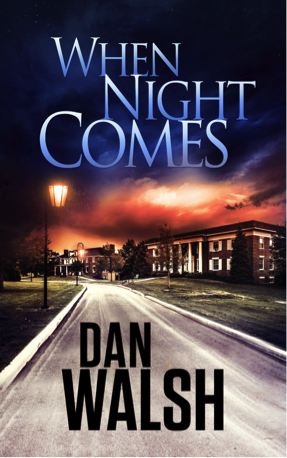 Jack Turner comes back to Culpepper to give a series of lectures for his old history professor. Within days, he starts having bizarre experiences at night. Like he’s traveling back in time, experiencing the epic events in his lectures firsthand. He has no control over these experiences and can’t make them stop.
Jack Turner comes back to Culpepper to give a series of lectures for his old history professor. Within days, he starts having bizarre experiences at night. Like he’s traveling back in time, experiencing the epic events in his lectures firsthand. He has no control over these experiences and can’t make them stop.
Joe Boyd thought he’d left big city crime back in Pittsburgh when he took a detective job in Culpepper, Georgia, a sleepy southern college town. His peaceful life ends when two students turn up dead in two weeks. The coroner is saying natural causes, but something doesn’t add up.
Rachel Cook, a teaching assistant at Culpepper, can’t believe Jack is back in her life again. She’s had a crush on him since she was fourteen, but Jack never knew. He instantly seems attracted to her, but she can tell…something is deeply troubling him.Watching all this from a distance is Nigel Avery. He’s certain this experiment’s about to unravel. It’ll be his job to tie up all the loose ends when it does.
 Bestselling author Dan Walsh is known for page-turning storylines. Fans of his novels The Discovery and What Follows After will especially love…When Night Comes.
Bestselling author Dan Walsh is known for page-turning storylines. Fans of his novels The Discovery and What Follows After will especially love…When Night Comes.
Dan Walsh is the bestselling, award-winning author of more than a dozen novels including The Unfinished Gift, The Discovery and What Follows After. His books have been highly reviewed by USA Today and in magazines such as Publishers Weekly, RT Book Reviews and Library Journal. Dan lives and writes in the Daytona Beach area with his wife, Cindi. They have 2 grown children and 3 grandchildren.
 I thought I’d blog about a topic near and dear to my heart. As you may know, I write Romantic Suspense (RS) stories. I started writing in the RS genre because that’s what I love to read. I love suspense and I love romance. When you put it together…wow! LOL. So, yeah. But I have to say, I love other genres too. I really enjoy a good historical—especially if it has a thread of suspense in it. And I like Women’s Contemporary—especially if it has a thread of suspense in it.
I thought I’d blog about a topic near and dear to my heart. As you may know, I write Romantic Suspense (RS) stories. I started writing in the RS genre because that’s what I love to read. I love suspense and I love romance. When you put it together…wow! LOL. So, yeah. But I have to say, I love other genres too. I really enjoy a good historical—especially if it has a thread of suspense in it. And I like Women’s Contemporary—especially if it has a thread of suspense in it.Okay, okay…you get it. Ha.
My point is, as an author, I stick to one genre because studies have shown that readers like their authors to be consistent. To “brand” themselves and stay with it. But what about when an author has a great story in another genre? The question is: Do we write it or not? Are you, as readers, receptive to that idea? I know I am, but wondered about the majority. And yes, one day you might see an historical written by me! And yes, it will have an element of suspense in it. LOL.
So that brings me to my buddy Dan Walsh. I met Dan at an awards banquet a few years ago. We write for the same publishing house and share a great editor (as of this posting) and he won like a bazillion awards that night. J We had a great chat over dinner and I realized I wanted to read some of his books. So I did. And I wasn’t disappointed. J
Dan is a great author, full of talent and amazing imagination. You might know him for his Nicholas-Sparks-type books. Recently, Dan has decided to branch out and write a suspense story. I was super excited to read it since I’ve enjoyed Dan’s other books. I told Dan I wanted to read his suspense and he sent me a copy. WOW! Let me just say, I LOVED this story. It’s different and romantic and yes—suspenseful! I really enjoyed it and hope you’ll give it a read.
I asked Dan to share a little bit about himself. Stuff not in his bio. This is what he had to say:
I’ve been married to the only woman I’ve ever loved (and still my closest friend), Cindi. We just celebrated our 38th anniversary. We have two grown children and three grandchildren. We are serious dog lovers and always have been. We have three dogs at the moment. My wife is a professional dog trainer working full-time at our local Humane Society. I've actually just started a 3-book trilogy where one of the main characters in each book will be a dog.
A little more about my writing life. My new release, When Night Comes, is my 14thnovel, my first indie, and my first true suspense novel. Although suspense factors heavily in all my books, even the love stories. Most of my other novels were contracted with Revell, one with Guideposts. I received my first contract for The Unfinished Gift in 2008, and it came out at Christmastime a year later. My final book with Revell is another Christmas book, which will come out next year.
If things go well, I hope to write both kinds of novels in the future (suspense and my "Nicholas-Sparks-type books).
Thanks for sharing, Dan!
So! My question for you readers…J What do you think about “genre hopping”? Are you willing to give an author a shot at writing in a different genre? Thanks for sharing your thoughts!
Don't forget to join the conversation!
Blessings,
Lynette
TWEETABLES
Should a writer stick to only one genre or not? via @Lynette Eason & @DanWalshAuthor (Click to Tweet)
Authors writing in multiple genres - good idea or not? - via @LynetteEason & @DanWalshAuthor (Click to Tweet)
When Night Comes
 Jack Turner comes back to Culpepper to give a series of lectures for his old history professor. Within days, he starts having bizarre experiences at night. Like he’s traveling back in time, experiencing the epic events in his lectures firsthand. He has no control over these experiences and can’t make them stop.
Jack Turner comes back to Culpepper to give a series of lectures for his old history professor. Within days, he starts having bizarre experiences at night. Like he’s traveling back in time, experiencing the epic events in his lectures firsthand. He has no control over these experiences and can’t make them stop.
Joe Boyd thought he’d left big city crime back in Pittsburgh when he took a detective job in Culpepper, Georgia, a sleepy southern college town. His peaceful life ends when two students turn up dead in two weeks. The coroner is saying natural causes, but something doesn’t add up.
Rachel Cook, a teaching assistant at Culpepper, can’t believe Jack is back in her life again. She’s had a crush on him since she was fourteen, but Jack never knew. He instantly seems attracted to her, but she can tell…something is deeply troubling him.Watching all this from a distance is Nigel Avery. He’s certain this experiment’s about to unravel. It’ll be his job to tie up all the loose ends when it does.
 Bestselling author Dan Walsh is known for page-turning storylines. Fans of his novels The Discovery and What Follows After will especially love…When Night Comes.
Bestselling author Dan Walsh is known for page-turning storylines. Fans of his novels The Discovery and What Follows After will especially love…When Night Comes. Dan Walsh is the bestselling, award-winning author of more than a dozen novels including The Unfinished Gift, The Discovery and What Follows After. His books have been highly reviewed by USA Today and in magazines such as Publishers Weekly, RT Book Reviews and Library Journal. Dan lives and writes in the Daytona Beach area with his wife, Cindi. They have 2 grown children and 3 grandchildren.
Published on November 19, 2014 01:00
November 18, 2014
Indie Tuesday—Tips to Survive the Rapid Release Model for Indie Publishing
 Jessica @AuthorKeller here: There are two schools of thought within the indie world when it comes to book release strategies. The first is to follow the same pattern that the traditional industry has, which is about a book a year—causing a series to span for 3-4 years on a release schedule. This strategy follows the slow-and-steady-wins-the-race model. It's the strategy I'm using, not because I picked it, but because it fit best with my career plan (and sanity) as a hybrid. The second model is a rapid release model. That can span days to a few months maximum between book releases. Many of my author friends are doing this release strategy with excellent results. Author Carol Moncado is one of those friends and she's here today to talk about why she chose the rapid release plan. * * *by Carol Moncado @CarolMondcado
Jessica @AuthorKeller here: There are two schools of thought within the indie world when it comes to book release strategies. The first is to follow the same pattern that the traditional industry has, which is about a book a year—causing a series to span for 3-4 years on a release schedule. This strategy follows the slow-and-steady-wins-the-race model. It's the strategy I'm using, not because I picked it, but because it fit best with my career plan (and sanity) as a hybrid. The second model is a rapid release model. That can span days to a few months maximum between book releases. Many of my author friends are doing this release strategy with excellent results. Author Carol Moncado is one of those friends and she's here today to talk about why she chose the rapid release plan. * * *by Carol Moncado @CarolMondcadoAm I crazy?
 Those who know me well, like my lovely hostess Jessica, would roll their eyes and think it was a rhetorical question. Those who don’t know me well may hear about my indie release schedule for this holiday season and agree with them.
Those who know me well, like my lovely hostess Jessica, would roll their eyes and think it was a rhetorical question. Those who don’t know me well may hear about my indie release schedule for this holiday season and agree with them.See, I’m releasing six books in seven weeks.
It started with my debut, Finding Mr. Write , November 10 and continued yesterday with the release of Good Enough for a Princess . Each are book one in their respective three-book series. The third release is next Monday with Finally Mr. Write . After that, the release dates are a bit up in the air, but all six books are expected to be out by Christmas.
The urge to go indie has been building for a year, but I’ve been writing longer than that and have over a dozen manuscripts. It’s a (relatively) simple thing for me to take six books in two series and polish them up for release.
 Last summer, I read an article by Hugh Howey on what he called the Liliana Nirvana Technique. Liliana Hart began indie publishing with no traditional publishing career beforehand. She called her strategy “5 down and 1 in the hole.” She released five books on one day and followed up with another one a month later.
Last summer, I read an article by Hugh Howey on what he called the Liliana Nirvana Technique. Liliana Hart began indie publishing with no traditional publishing career beforehand. She called her strategy “5 down and 1 in the hole.” She released five books on one day and followed up with another one a month later.“Everyone knows” Amazon’s algorithms like you better once you’ve got four or five books out. Don’t ask me to explain Amazon’s algorithms, I doubt Sheldon Cooper could, but that’s the way it seems to work.
The idea seemed to fit with everything I’d heard “around” from other indies and really seemed to take root. I decided against Liliana’s method but diddecide to release two full series in rapid succession.
And therein lay the crazy.
I’ve spent much of the last month absolutely glued to my computer trying to get everything done and I thought I would share a bit of what I’ve learned should you ever decide to do the same thing.
Have at least a good draft of all of them done. For me, the first three were done or nearly so, but the second three need a bit more work. My goal had been to have those three closer to finished before releasing the first, but life intervened after I’d set my first two release dates using Amazon’s preorder feature. This will also give you more time to market, something I’ve sorely lacked.Don’t do it without a great support system in place. My husband is on board with this. Yes, he gets frustrated especially when I’m working away from home, but he believes in me and that I. Can. Do. This. My sister has also been a huge support. She’s watched my kids, moved a recliner into her office/library for me to use, and let me work there as my office-away-from-home.Have a good network. I suppose this isn’t strictly necessary, but I am so incredibly grateful to the friends and family who are supporting me in this indie thing. I have a large network of writing friends. Many-times-multi-published authors and total newbies. Traditionally published, indie published, and every sort of hybrid in-between. Having them cheer me on makes such a difference. Shoulders to cry on are a must.Have a good resource network. Find a group of indie authors who can be your “go-to” people. Whether it’s why the .pdf just. Won’t. Format. Right. Or what do sales generally do after the first of the year [up? Down? Stable?]. Or trying to figure out where that preorder information is. (Thanks, Jess, for helping me with that one!) Cover advice. Advice on dealing with vendors when there’s trouble. Recommending vendors who are fabulous to work with. And so on. It can be a small, informal group of indie friends or a large, formal Facebook or email group, but don’t try to do it yourself.
I don’t really know what to compare it to, but it seems to be doing okay. I’m not breaking any records, but I’m also not doing too shabby either! So, is this strategy going to pan out? Am I just nuts? Only time will tell!
What do you think? Would you consider doing a variation of the Liliana Nirvana technique? Why or why not?
TWEETABLESTips for #IndiePub rapid release - from @CarolMoncado via @authorkeller (Click to Tweet)
Author @CarolMoncado shares how she survives the #IndiePub rapid release model - via @authorkeller (Click to Tweet)
 When not writing about imaginary friends, Carol Moncado is hanging out with her husband, four kids, and a dog who weighs less than most hardcover books. She prefers watching NCIS to almost anything, except maybe watching Castle. She believes peanut butter M&Ms are the perfect food and Dr. Pepper should come in an IV. When not watching her kids - and the dog - race around her big backyard in Southwest Missouri, she's teaching American Government at a local community college. She's President of MozArks ACFW, category coordinator for First Impressions, blogger at InspyRomance, and represented by Tamela Hancock Murray.
When not writing about imaginary friends, Carol Moncado is hanging out with her husband, four kids, and a dog who weighs less than most hardcover books. She prefers watching NCIS to almost anything, except maybe watching Castle. She believes peanut butter M&Ms are the perfect food and Dr. Pepper should come in an IV. When not watching her kids - and the dog - race around her big backyard in Southwest Missouri, she's teaching American Government at a local community college. She's President of MozArks ACFW, category coordinator for First Impressions, blogger at InspyRomance, and represented by Tamela Hancock Murray.
Published on November 18, 2014 01:00
November 17, 2014
Social Media Monday—Are You Blogging or Lecturing?
By Edie Melson@EdieMelson
 Blogging is a great way to build relationships with your audience.
Blogging is a great way to build relationships with your audience.
But a lot of people forget that, just like building relationship in person, it’s never a good idea to talk so much that others don’t have a chance to share their thoughts.
I often visit blogs where I want to ask the reader, “Are you blogging or lecturing?” There are things we can do to make sure our posts encourage conversation. And there are things we can do that discourage interaction.Nobody likes to be lectured, so it's up to us to make sure our blogs are places of conversation.
Ways to Encourage Conversation on Your Blog1. End every blog post with an open-ended question. It’s not enough to ask a question at the end of the post. We must make sure the answer to the question isn’t just yes or no.
 2. Make sure the question posed doesn’t have an assumed right or wrong answer. This will shut down conversation even faster than a yes or no question. If we ask a question that has a definite right or wrong answer, very few people will be willing to risk the wrong answer. And after several have answered the question correctly, we’ll find no one else is answering because they feel like everything that needs to be said has been said.
2. Make sure the question posed doesn’t have an assumed right or wrong answer. This will shut down conversation even faster than a yes or no question. If we ask a question that has a definite right or wrong answer, very few people will be willing to risk the wrong answer. And after several have answered the question correctly, we’ll find no one else is answering because they feel like everything that needs to be said has been said.
3. Ask readers to share an experience that relates to the post. Sometimes a blog post won’t lend itself to a question. In those instances we can encourage our audience to share their experience.
4. Ask readers to add to a list of suggestions or tips that have been shared. I do that a lot on here. (And I’ll do it at the end of this post.) Again, if a question isn’t appropriate or feel right, ask them to contribute to the topic already introduced.
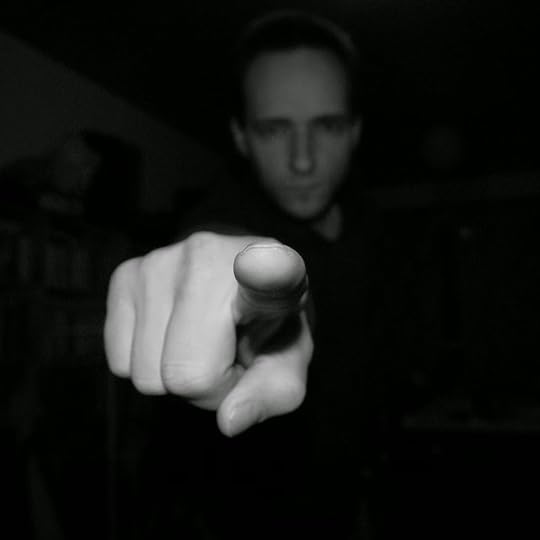 5. Avoid using the pronoun you. This is especially true if the post is pointing out something negative. Using the word you carries a finger-pointing connotation that we want to avoid. For example, in point number 1 above, I would never say, “you must make sure the answer to the question isn’t just yes or no.” Instead, I phrased it, “We must make sure the answer to the question isn’t just yes or no.”
5. Avoid using the pronoun you. This is especially true if the post is pointing out something negative. Using the word you carries a finger-pointing connotation that we want to avoid. For example, in point number 1 above, I would never say, “you must make sure the answer to the question isn’t just yes or no.” Instead, I phrased it, “We must make sure the answer to the question isn’t just yes or no.”
6. Share your own personal experience. If we’re asking someone else to share, we need to make sure our blogs are a safe place for that. Going first rarely feels safe. So I always try to make sure I share my own experience before asking my readers to share theirs.
7. Always try to answer blog comments. This doesn’t mean every single comment has to be answered individually, although I do try to do that. It’s important that your readers don’t feel like they’re commenting to nobody.
These are the main things that I try to do with every post I write. I don’t always do it right, but my goal is to make this a fun place to hangout, learn from each other and share the writing journey.
Now it’s your turn. I would really like to know what you’d add to my list. Or maybe share some of the things that inhibit you from commenting on a blog post.
Don’t forget to join the conversation!Blessings,Edie
TWEETABLESTrouble getting readers to join the conversation? 7 Tips from #Blogging expert @EdieMelson can help (Click to Tweet)
Are you blogging or lecturing – if you’re not sure #Blogging expert @EdieMelson has some tips to help (Click to Tweet)
 Blogging is a great way to build relationships with your audience.
Blogging is a great way to build relationships with your audience. But a lot of people forget that, just like building relationship in person, it’s never a good idea to talk so much that others don’t have a chance to share their thoughts.
I often visit blogs where I want to ask the reader, “Are you blogging or lecturing?” There are things we can do to make sure our posts encourage conversation. And there are things we can do that discourage interaction.Nobody likes to be lectured, so it's up to us to make sure our blogs are places of conversation.
Ways to Encourage Conversation on Your Blog1. End every blog post with an open-ended question. It’s not enough to ask a question at the end of the post. We must make sure the answer to the question isn’t just yes or no.
 2. Make sure the question posed doesn’t have an assumed right or wrong answer. This will shut down conversation even faster than a yes or no question. If we ask a question that has a definite right or wrong answer, very few people will be willing to risk the wrong answer. And after several have answered the question correctly, we’ll find no one else is answering because they feel like everything that needs to be said has been said.
2. Make sure the question posed doesn’t have an assumed right or wrong answer. This will shut down conversation even faster than a yes or no question. If we ask a question that has a definite right or wrong answer, very few people will be willing to risk the wrong answer. And after several have answered the question correctly, we’ll find no one else is answering because they feel like everything that needs to be said has been said.3. Ask readers to share an experience that relates to the post. Sometimes a blog post won’t lend itself to a question. In those instances we can encourage our audience to share their experience.
4. Ask readers to add to a list of suggestions or tips that have been shared. I do that a lot on here. (And I’ll do it at the end of this post.) Again, if a question isn’t appropriate or feel right, ask them to contribute to the topic already introduced.
 5. Avoid using the pronoun you. This is especially true if the post is pointing out something negative. Using the word you carries a finger-pointing connotation that we want to avoid. For example, in point number 1 above, I would never say, “you must make sure the answer to the question isn’t just yes or no.” Instead, I phrased it, “We must make sure the answer to the question isn’t just yes or no.”
5. Avoid using the pronoun you. This is especially true if the post is pointing out something negative. Using the word you carries a finger-pointing connotation that we want to avoid. For example, in point number 1 above, I would never say, “you must make sure the answer to the question isn’t just yes or no.” Instead, I phrased it, “We must make sure the answer to the question isn’t just yes or no.” 6. Share your own personal experience. If we’re asking someone else to share, we need to make sure our blogs are a safe place for that. Going first rarely feels safe. So I always try to make sure I share my own experience before asking my readers to share theirs.
7. Always try to answer blog comments. This doesn’t mean every single comment has to be answered individually, although I do try to do that. It’s important that your readers don’t feel like they’re commenting to nobody.
These are the main things that I try to do with every post I write. I don’t always do it right, but my goal is to make this a fun place to hangout, learn from each other and share the writing journey.
Now it’s your turn. I would really like to know what you’d add to my list. Or maybe share some of the things that inhibit you from commenting on a blog post.
Don’t forget to join the conversation!Blessings,Edie
TWEETABLESTrouble getting readers to join the conversation? 7 Tips from #Blogging expert @EdieMelson can help (Click to Tweet)
Are you blogging or lecturing – if you’re not sure #Blogging expert @EdieMelson has some tips to help (Click to Tweet)
Published on November 17, 2014 01:00
November 16, 2014
Weekend Worship—When God Takes Failure and Turns it Into Fruit
 But the fruit of the Spirit is love, joy, peace, patience, kindness, goodness, faithfulness, gentleness, self-control… Galatians 5:22-23
But the fruit of the Spirit is love, joy, peace, patience, kindness, goodness, faithfulness, gentleness, self-control… Galatians 5:22-23For me, this verse is tough. Some of the things listed are easy. Some…well…not so much.
In my travels this fall, I’ve had the opportunity to hear about other the journey to publication from a lot of different authors. I noticed most of us have a similar story. Very few had a direct route. Instead we traveled a circuitous trip full of bumps and detours.Frequently a writer's path is littered with broken dreams and shattered expectations.
 As I listened to all these stories, one thing stood out. That sometimes-tortuous path, made us better writers. And beyond that, it made what was published, publishable.
As I listened to all these stories, one thing stood out. That sometimes-tortuous path, made us better writers. And beyond that, it made what was published, publishable. That insight made me stop and reflect on those instances in my life that I'd always labeled as failures and shortcomings. Now I saw them as opportunities to grow and learn. Those times of waiting had become patience, the frustration had become discipline, and the rejections became joy. All those difficult circumstances had been used by God to teach me things I lacked, as well as giving me compassion for others on similar journeys.
Somewhere along the way, God used the seeds of failure to grow fruit in my life.
How have your failures turned into fruit? I’d love to hear your insights.
Published on November 16, 2014 03:37
November 15, 2014
Every Leaf Speaks Bliss to Me—A Social Media Image to Share
by Edie Melson @EdieMelson
As I've mentioned before, I love autumn. I especially love to go leaf peeping in the Blue Ridge Mountains. I'd love to know what places you go to watch the magnificent colors of fall.
 Every leaf speaks bliss to me, fluttering from the autumn tree. Emily Bronte
Every leaf speaks bliss to me, fluttering from the autumn tree. Emily Bronte
Share your thoughts in the comment section below.
I also invite you to use this image any way you like online. Post it to your blog, share it on Facebook, Twitter, Pinterest, anywhere you'd like. All I ask is that you keep it intact, with my website watermark visible.
Don't forget to join the conversation!Blessings,Edie
As I've mentioned before, I love autumn. I especially love to go leaf peeping in the Blue Ridge Mountains. I'd love to know what places you go to watch the magnificent colors of fall.
 Every leaf speaks bliss to me, fluttering from the autumn tree. Emily Bronte
Every leaf speaks bliss to me, fluttering from the autumn tree. Emily BronteShare your thoughts in the comment section below.
I also invite you to use this image any way you like online. Post it to your blog, share it on Facebook, Twitter, Pinterest, anywhere you'd like. All I ask is that you keep it intact, with my website watermark visible.
Don't forget to join the conversation!Blessings,Edie
Published on November 15, 2014 01:00
November 14, 2014
Creativity: 5 Tips to Nurture the Writer’s Best Friend
 Edie here. Today I'm so excited to introduce you to a writer friend of mine. Jerusha and I finally got to meet in person at the ACFW conference this year and I convinced her to be my guest here. She's an amazing writer and I know you'll love her as much as me!
Edie here. Today I'm so excited to introduce you to a writer friend of mine. Jerusha and I finally got to meet in person at the ACFW conference this year and I convinced her to be my guest here. She's an amazing writer and I know you'll love her as much as me!Jerusha Agen is a lifelong lover of story--a passion that has led her to a B.A. in English and a highly varied career. A member of American Christian Fiction Writers, Jerusha is the author of the Sisters Redeemed Series, which includes the titles This Dance, This Shadow, and This Redeemer.
Jerusha co-authored the e-books A Ruby Christmas and A Dozen Apologies from Write Integrity Press. Jerusha is also a film critic, with reviews featured at the website, www.RedeemerReviews.com.
Jerusha relishes snowy Midwest winters spent with her three large, furry dogs and two small, furry cats.
* * *
5 Tips to Nurture the Writer's Best Friend
 Creativity and I have been friends for years. But, we don’t always get along. Sometimes I’d call our relationship sort of love-hate. Yet, as a writer, I need creativity. Without it, I can’t write at all. With only a smidgen of creativity, I can’t write well.
Creativity and I have been friends for years. But, we don’t always get along. Sometimes I’d call our relationship sort of love-hate. Yet, as a writer, I need creativity. Without it, I can’t write at all. With only a smidgen of creativity, I can’t write well.When I’m trudging along on some writing project, I feel like my creativity forgot to show up for our appointed meeting time. When I get stuck in a big way, unable to write or think of ideas, I wonder if my creativity has died. If it were still alive, it should be by my side, helping me write, shouldn’t it?At such times, I tend to panic and wonder if my creativity is gone for good. What if it never comes back and I’ve lost the ability to write forever?
I know I can’t be the only writer who feels like this. After all, we are only able to be writers because we have been gifted with creativity. And we need that creativity to keep writing.
But, like a friend, our creativity isn’t going to keep being there for us no matter how we abuse it. We have to take care of our creativity, and in return we’ll have a terrific best friend that won’t bail on us at the sight of a fast-approaching deadline.
How do we nurture the writer’s best friend? Through my rather shaky relationship with my own creativity, I’ve had to come up with some ideas to help sustain the friendship:
 1. Have Fun: Could you thrive in a friendship dominated by work and stress? Neither can your creativity! If you’re struggling with writer’s block or writing that’s frustrating and anxiety-causing, chances are you aren’t having enough fun. Take a second and remember why you wanted to write in the first place. Then make sure that what you’re writing allows for enjoyment. If the problem is what you’re writing, think about switching to writing what you actually care about. If the problem is you or stress, then remind yourself why what you’re doing is fun and give yourself permission to enjoy it!
1. Have Fun: Could you thrive in a friendship dominated by work and stress? Neither can your creativity! If you’re struggling with writer’s block or writing that’s frustrating and anxiety-causing, chances are you aren’t having enough fun. Take a second and remember why you wanted to write in the first place. Then make sure that what you’re writing allows for enjoyment. If the problem is what you’re writing, think about switching to writing what you actually care about. If the problem is you or stress, then remind yourself why what you’re doing is fun and give yourself permission to enjoy it! 2. Quality Time: Can you have a good friendship if you don’t spend time with your buddy? If you want your creativity to stick around and help you out, you have to spend time together. This means that long hiatuses from writing or anything else creative will hurt your ability to create in the future. It’s possible to pick up your creativity again after an extensive break, but you’ll have to work hard at rebuilding that relationship for a while before your creativity will be your best friend again.
 3. Give It a Rest: Nobody wants their friend worn-out, right? Everyone’s creativity is different, but many seem to suffer under too much use without a break. When you feel mentally sapped or hit a snag in your writing, try letting yourself take a five minute break on something else. Set a timer, though, or you could fall into writer’s avoidance, another deadly trap.
3. Give It a Rest: Nobody wants their friend worn-out, right? Everyone’s creativity is different, but many seem to suffer under too much use without a break. When you feel mentally sapped or hit a snag in your writing, try letting yourself take a five minute break on something else. Set a timer, though, or you could fall into writer’s avoidance, another deadly trap.4. Feed the Friendship: When we care about a friend, we find out what that friend likes best, and then we give it to him or her as much as possible. That’s feeding the friendship so it will have the energy to last and always be at its peak. You need to find what feeds your creativity. Your creative muse might be reading books, watching movies, painting, basket-weaving. You’ll know the best food for your creativity when you find it—you’ll get ideas and breakthroughs in your work-in-progress, and you’ll practically feel your creative brain cells firing like mad (okay, so I’m a writer, not a scientist!).
5. Trust: If you can’t trust a person, remaining friends is difficult and sometimes impossible. You need to trust your creativity through thick and thin. If you’re creative, then you have creativity. Trust that and rely on your gift to pull you through tough spots. For me as a Christian, this trust actually means that I’m putting my trust in the One who gave me my creativity and other writing skills. God gave me creativity for a reason and wants me to use it to His glory. God gave you your creativity, too, so relax; you’ve already got the writer’s best friend.
Have you tried any of these tips to nurture your creativity? Which ones worked or didn’t work? Do you have more ideas that work for you? Please share!
Don't forget to join the conversation!
Blessings,
Jerusha
TWEETABLES
Creativity: 5 Tips to Nurture the Writer's Best Friend - via Jerusha Agen, @SDGwords on @EdieMelson (Click to Tweet)
As writers we must nurture #creativity like a best friend - via Jerusha Agen, @SDGwords on @EdieMelson (Click to Tweet)
 This Redeemer
This Redeemerby Jerusha Agen
Not all prisons have bars.
Charlotte Davis should know—she’s lived in one for years. She can handle getting slapped around by her boyfriend, Tommy, and even being forced to do things she would never choose, but when Tommy turns on her 10-year-old daughter, Charlotte must try to escape. With nowhere else to turn, Charlotte runs to the stranger her dying mother believed would help her.
Looking only for shelter or cash, Charlotte finds a family she longs to call her own and a gentle man she could learn to love. But if Tommy catches up with Charlotte, these strangers could discover the truth about her. Will they send her back to Tommy? Or can a Father’s love set her free?
Published on November 14, 2014 01:00
November 13, 2014
The Book Launch and the Aftermath
by Warren Adler @WarrenAdler
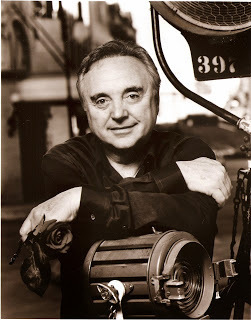 Warren Adler is best known for The War of the Roses, his masterpiece fictionalization of a macabre divorce turned into the Golden Globe and BAFTA nominated dark comedy hit starring Michael Douglas, Kathleen Turner and Danny DeVito. Adler's international hit stage adaptation of the novel will premiere on Broadway in 2015-2016. Adler has also optioned and sold film rights for a number of his works including Random Hearts (starring Harrison Ford and Kristen Scott Thomas) and The Sunset Gang (produced by Linda Lavin for PBS' American Playhouse series starring Jerry Stiller, Uta Hagen, Harold Gould and Doris Roberts). In recent development are the Broadway Production of The War of the Roses, to be produced by Jay and Cindy Gutterman, The War of the Roses - The Children (Grey Eagle Films and Permut Presentations), a feature film adaptation of the sequel to Adler's iconic divorce story, Target Churchill (Grey Eagle Films and Solution Entertainment),Mourning Glory, to be adapted by Karen Leigh Hopkins, and Capitol Crimes (Grey Eagle Films and Sennet Entertainment), a television series based on his Fiona Fitzgerald mystery series. Warren Adler's newest thriller, Treadmill, is officially available.
Warren Adler is best known for The War of the Roses, his masterpiece fictionalization of a macabre divorce turned into the Golden Globe and BAFTA nominated dark comedy hit starring Michael Douglas, Kathleen Turner and Danny DeVito. Adler's international hit stage adaptation of the novel will premiere on Broadway in 2015-2016. Adler has also optioned and sold film rights for a number of his works including Random Hearts (starring Harrison Ford and Kristen Scott Thomas) and The Sunset Gang (produced by Linda Lavin for PBS' American Playhouse series starring Jerry Stiller, Uta Hagen, Harold Gould and Doris Roberts). In recent development are the Broadway Production of The War of the Roses, to be produced by Jay and Cindy Gutterman, The War of the Roses - The Children (Grey Eagle Films and Permut Presentations), a feature film adaptation of the sequel to Adler's iconic divorce story, Target Churchill (Grey Eagle Films and Solution Entertainment),Mourning Glory, to be adapted by Karen Leigh Hopkins, and Capitol Crimes (Grey Eagle Films and Sennet Entertainment), a television series based on his Fiona Fitzgerald mystery series. Warren Adler's newest thriller, Treadmill, is officially available.
* * *
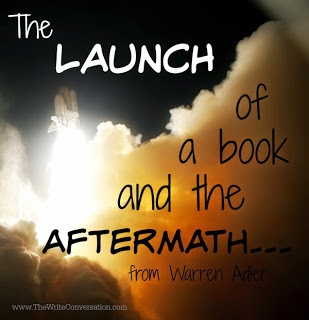 The launch of a book, be it the first for an author or their most recent release, has always been the established gateway for traditional publishers to introduce a new work. The launch of a book is like the birth of a baby: crucial and necessary. There is, after all, no future for an unsuccessful birth. For the author, like anything born into a lifecycle, it is the aftermath that really matters, and for those authors seeking career continuity, and even enduring recognition, digital publishing has offered a widening arena of options for keeping a book from disappearing.
The launch of a book, be it the first for an author or their most recent release, has always been the established gateway for traditional publishers to introduce a new work. The launch of a book is like the birth of a baby: crucial and necessary. There is, after all, no future for an unsuccessful birth. For the author, like anything born into a lifecycle, it is the aftermath that really matters, and for those authors seeking career continuity, and even enduring recognition, digital publishing has offered a widening arena of options for keeping a book from disappearing.
The Traditional Publishing Path
I started out as an author with traditional royalty contracts, having my books, The War of the Roses (Warner Books), Random Hearts (Macmillan), The Sunset Gang(Viking Press), Mourning Glory (Kensington), and Trans-Siberian Express (Putnam), among others, represented by large publishers. But traditional publishers could not offer me what I wanted for my work. The old tried and true publishing path went something like this: The book is edited, a cover is designed, and a date is set for the launch. Reviewers are informed and sent copies, an attempt is made to secure endorsements, and the book begins its journey first, as a hardback. The book is catalogued well in advance. Media outlets are contacted, and some respond depending on the book and the novelist's previous work. Bookstores place orders, but most are speculative, the book may or may not be shelved.
Then the launch date arrives, and if the publisher senses "buzz," an ad or two might be placed, and coop money invested. A book party may be arranged by the publisher, the author's friends, or relatives. The book is now available for purchase.
 But for most books, especially debut novels, if sales are low, the author's future is dim, and the book eventually fades from the public consciousness. If the book hits a prestigious bestseller list, it has the advantage of being placed in the forefront of the public consciousness by means of various outlets, reminding readers of its presence and sparking purchases. The amount of time on a bestseller list is directly proportional to sales.
But for most books, especially debut novels, if sales are low, the author's future is dim, and the book eventually fades from the public consciousness. If the book hits a prestigious bestseller list, it has the advantage of being placed in the forefront of the public consciousness by means of various outlets, reminding readers of its presence and sparking purchases. The amount of time on a bestseller list is directly proportional to sales.
Traditionally, a paperback would be launched some time later, and by that point, the hardback is discounted and remaindered. After that, unless the work finds its way on to the big or small screen as an adaptation, or to academia to be adopted into the curriculum, it fades into obscurity or simply disappears. Traditionally published books are also subject to contractual terms, which eventually take a work out of print based on certain sales outcomes within a given period.
Going Digital Before the advent of digital publishing, most books had no chance to continue being circulated in new and creative ways, even those that were briefly celebrated. Memory is short, and notoriety and celebrity sputter quickly like the last gasp of a candle before it flames out. Of course, those few who do achieve this brief notoriety consider the spotlight moment as a worthy payout for work well received and recognized as having contributed to the zeitgeist.
Before the advent of digital publishing, most books had no chance to continue being circulated in new and creative ways, even those that were briefly celebrated. Memory is short, and notoriety and celebrity sputter quickly like the last gasp of a candle before it flames out. Of course, those few who do achieve this brief notoriety consider the spotlight moment as a worthy payout for work well received and recognized as having contributed to the zeitgeist.
While reticence and modesty may inhibit vocalizing their conviction, authors believe that their work has a long tail, has relevance and consequence, and is worthy of survival. From my perspective, it is the absolute truth that motivates artistic creation. But for authors who aspire to endurance, it is in the aftermath where the grand prize lies.
Digital publishing defies traditional norms that dictate the average life span of a book, and authors are no longer bound by the limitations of a traditional book launch. In shelving methods used by legacy publishers, books would simply be removed from the shelf never to be advertised again. Buyers would have to search for titles in libraries or secondhand bookstores. But when a reader searches for a recently released title with an e-retailer such as Amazon which also offers the Print on Demand option, iBooks, Nook or Kobo, etc. all of the author's previous works are displayed alongside the search result on the interface. Thus an author's complete repertoire could always remain available for purchase. An e-book will never go out of print.
The Promotion Front Thanks also to digital media, the author now has the ability to promote their work via social networking, blogs, online reviews, and personal websites. Authors today, far from having their backlist disappear into the ether, can play an active role in discoverability. This also means that an author can re-launch any book from their backlist at will, utilizing all the networking, publicity, and advertising levers, paid or unpaid, available to the author.
Thanks also to digital media, the author now has the ability to promote their work via social networking, blogs, online reviews, and personal websites. Authors today, far from having their backlist disappear into the ether, can play an active role in discoverability. This also means that an author can re-launch any book from their backlist at will, utilizing all the networking, publicity, and advertising levers, paid or unpaid, available to the author.
As a novelist and an e-book pioneer, I have long been driven by the issue of discoverability and survival of my books. It has always been a heroic challenge, full of experimentation and beyond predictability, perhaps best characterized by William Shakespeare's great quote from Macbeth. "If you can look into the seeds of time/And say which grain will grow and which will not, speak, then, to me...."
TWEETABLESAuthors have many more options now for #booklaunches & promo - via author @WarrenAdler on @EdieMelson (Click to Tweet)
The book launch and the aftermath - from best-selling author @WarrenAdler on @EdieMelson (Click to Tweet)
 Warren Adler is best known for The War of the Roses, his masterpiece fictionalization of a macabre divorce turned into the Golden Globe and BAFTA nominated dark comedy hit starring Michael Douglas, Kathleen Turner and Danny DeVito. Adler's international hit stage adaptation of the novel will premiere on Broadway in 2015-2016. Adler has also optioned and sold film rights for a number of his works including Random Hearts (starring Harrison Ford and Kristen Scott Thomas) and The Sunset Gang (produced by Linda Lavin for PBS' American Playhouse series starring Jerry Stiller, Uta Hagen, Harold Gould and Doris Roberts). In recent development are the Broadway Production of The War of the Roses, to be produced by Jay and Cindy Gutterman, The War of the Roses - The Children (Grey Eagle Films and Permut Presentations), a feature film adaptation of the sequel to Adler's iconic divorce story, Target Churchill (Grey Eagle Films and Solution Entertainment),Mourning Glory, to be adapted by Karen Leigh Hopkins, and Capitol Crimes (Grey Eagle Films and Sennet Entertainment), a television series based on his Fiona Fitzgerald mystery series. Warren Adler's newest thriller, Treadmill, is officially available.
Warren Adler is best known for The War of the Roses, his masterpiece fictionalization of a macabre divorce turned into the Golden Globe and BAFTA nominated dark comedy hit starring Michael Douglas, Kathleen Turner and Danny DeVito. Adler's international hit stage adaptation of the novel will premiere on Broadway in 2015-2016. Adler has also optioned and sold film rights for a number of his works including Random Hearts (starring Harrison Ford and Kristen Scott Thomas) and The Sunset Gang (produced by Linda Lavin for PBS' American Playhouse series starring Jerry Stiller, Uta Hagen, Harold Gould and Doris Roberts). In recent development are the Broadway Production of The War of the Roses, to be produced by Jay and Cindy Gutterman, The War of the Roses - The Children (Grey Eagle Films and Permut Presentations), a feature film adaptation of the sequel to Adler's iconic divorce story, Target Churchill (Grey Eagle Films and Solution Entertainment),Mourning Glory, to be adapted by Karen Leigh Hopkins, and Capitol Crimes (Grey Eagle Films and Sennet Entertainment), a television series based on his Fiona Fitzgerald mystery series. Warren Adler's newest thriller, Treadmill, is officially available.* * *
 The launch of a book, be it the first for an author or their most recent release, has always been the established gateway for traditional publishers to introduce a new work. The launch of a book is like the birth of a baby: crucial and necessary. There is, after all, no future for an unsuccessful birth. For the author, like anything born into a lifecycle, it is the aftermath that really matters, and for those authors seeking career continuity, and even enduring recognition, digital publishing has offered a widening arena of options for keeping a book from disappearing.
The launch of a book, be it the first for an author or their most recent release, has always been the established gateway for traditional publishers to introduce a new work. The launch of a book is like the birth of a baby: crucial and necessary. There is, after all, no future for an unsuccessful birth. For the author, like anything born into a lifecycle, it is the aftermath that really matters, and for those authors seeking career continuity, and even enduring recognition, digital publishing has offered a widening arena of options for keeping a book from disappearing.
The Traditional Publishing Path
I started out as an author with traditional royalty contracts, having my books, The War of the Roses (Warner Books), Random Hearts (Macmillan), The Sunset Gang(Viking Press), Mourning Glory (Kensington), and Trans-Siberian Express (Putnam), among others, represented by large publishers. But traditional publishers could not offer me what I wanted for my work. The old tried and true publishing path went something like this: The book is edited, a cover is designed, and a date is set for the launch. Reviewers are informed and sent copies, an attempt is made to secure endorsements, and the book begins its journey first, as a hardback. The book is catalogued well in advance. Media outlets are contacted, and some respond depending on the book and the novelist's previous work. Bookstores place orders, but most are speculative, the book may or may not be shelved.
Then the launch date arrives, and if the publisher senses "buzz," an ad or two might be placed, and coop money invested. A book party may be arranged by the publisher, the author's friends, or relatives. The book is now available for purchase.
 But for most books, especially debut novels, if sales are low, the author's future is dim, and the book eventually fades from the public consciousness. If the book hits a prestigious bestseller list, it has the advantage of being placed in the forefront of the public consciousness by means of various outlets, reminding readers of its presence and sparking purchases. The amount of time on a bestseller list is directly proportional to sales.
But for most books, especially debut novels, if sales are low, the author's future is dim, and the book eventually fades from the public consciousness. If the book hits a prestigious bestseller list, it has the advantage of being placed in the forefront of the public consciousness by means of various outlets, reminding readers of its presence and sparking purchases. The amount of time on a bestseller list is directly proportional to sales.Traditionally, a paperback would be launched some time later, and by that point, the hardback is discounted and remaindered. After that, unless the work finds its way on to the big or small screen as an adaptation, or to academia to be adopted into the curriculum, it fades into obscurity or simply disappears. Traditionally published books are also subject to contractual terms, which eventually take a work out of print based on certain sales outcomes within a given period.
Going Digital
 Before the advent of digital publishing, most books had no chance to continue being circulated in new and creative ways, even those that were briefly celebrated. Memory is short, and notoriety and celebrity sputter quickly like the last gasp of a candle before it flames out. Of course, those few who do achieve this brief notoriety consider the spotlight moment as a worthy payout for work well received and recognized as having contributed to the zeitgeist.
Before the advent of digital publishing, most books had no chance to continue being circulated in new and creative ways, even those that were briefly celebrated. Memory is short, and notoriety and celebrity sputter quickly like the last gasp of a candle before it flames out. Of course, those few who do achieve this brief notoriety consider the spotlight moment as a worthy payout for work well received and recognized as having contributed to the zeitgeist.While reticence and modesty may inhibit vocalizing their conviction, authors believe that their work has a long tail, has relevance and consequence, and is worthy of survival. From my perspective, it is the absolute truth that motivates artistic creation. But for authors who aspire to endurance, it is in the aftermath where the grand prize lies.
Digital publishing defies traditional norms that dictate the average life span of a book, and authors are no longer bound by the limitations of a traditional book launch. In shelving methods used by legacy publishers, books would simply be removed from the shelf never to be advertised again. Buyers would have to search for titles in libraries or secondhand bookstores. But when a reader searches for a recently released title with an e-retailer such as Amazon which also offers the Print on Demand option, iBooks, Nook or Kobo, etc. all of the author's previous works are displayed alongside the search result on the interface. Thus an author's complete repertoire could always remain available for purchase. An e-book will never go out of print.
The Promotion Front
 Thanks also to digital media, the author now has the ability to promote their work via social networking, blogs, online reviews, and personal websites. Authors today, far from having their backlist disappear into the ether, can play an active role in discoverability. This also means that an author can re-launch any book from their backlist at will, utilizing all the networking, publicity, and advertising levers, paid or unpaid, available to the author.
Thanks also to digital media, the author now has the ability to promote their work via social networking, blogs, online reviews, and personal websites. Authors today, far from having their backlist disappear into the ether, can play an active role in discoverability. This also means that an author can re-launch any book from their backlist at will, utilizing all the networking, publicity, and advertising levers, paid or unpaid, available to the author.As a novelist and an e-book pioneer, I have long been driven by the issue of discoverability and survival of my books. It has always been a heroic challenge, full of experimentation and beyond predictability, perhaps best characterized by William Shakespeare's great quote from Macbeth. "If you can look into the seeds of time/And say which grain will grow and which will not, speak, then, to me...."
TWEETABLESAuthors have many more options now for #booklaunches & promo - via author @WarrenAdler on @EdieMelson (Click to Tweet)
The book launch and the aftermath - from best-selling author @WarrenAdler on @EdieMelson (Click to Tweet)
Published on November 13, 2014 01:00
November 12, 2014
10 Things to Say to a Writer Who’s on the Ledge
by Edie Melson @EdieMelson
 Writing often feels like a solitary pursuit. Truthfully, it’s the successful writers who know better than to try to go it alone. Writing in a vacuum is not a good idea—for a lot of reasons. It’s easy to lose perspective and either believe what you’re writing is perfect, or worse, that it’s junk. Having others who share the same struggles make us stronger.
Writing often feels like a solitary pursuit. Truthfully, it’s the successful writers who know better than to try to go it alone. Writing in a vacuum is not a good idea—for a lot of reasons. It’s easy to lose perspective and either believe what you’re writing is perfect, or worse, that it’s junk. Having others who share the same struggles make us stronger.
Not to mention the fact that they can talk us down when we’re standing on a writing ledge. That’s what I want to share today.
10 Thing to Say to a Writer Who’s on the Ledge
1. Success has nothing to do with perfection. So often we try to make our writing perfect. It’s fine to shoot for excellence, but perfect is never going to happen. Quit beating yourself up for not reaching it.
 Every writer's journey is different.2. Every writer’s journey is different. Writers are masters a comparison. We try to judge our own worth by what others have or have not accomplished. We need to look within, not without when measuring our success.
Every writer's journey is different.2. Every writer’s journey is different. Writers are masters a comparison. We try to judge our own worth by what others have or have not accomplished. We need to look within, not without when measuring our success.
3. Quit being so hard on yourself. We are our own worst critics. We allow the negative voices in our heads free reign. It’s time to replace those harsh words with kind ones.
4. Courage isn’t the absence of fear. All writers struggle with fear—fear of failure, fear of not being good enough, fear of success. The key is to fight. Don’t give up, don’t give in.
5. Nothing lasts forever. This is even true for writers. There are good days, bad days, great days, and days when we want to give up. Remember that the ups and downs will happen, and this too shall pass.
6. It takes as long as it takes. So often we want success to be a part of a formula. The truth is, like I said on #2, every writer’s journey is different.
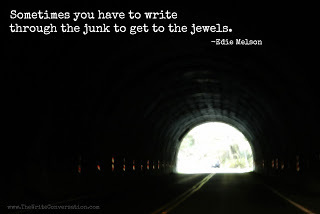 Sometimes you have to write through the junk
Sometimes you have to write through the junk
to get to the jewels.7. Sometimes you have to write through the junk to get to the jewels. We all want our writing path to be a continuous, unbroken line of improvement. The truth is far from that. There will be days, weeks, and even months where it’s more of a two steps forward and three steps back.
8. Failure is an option. More often than not it’s also the shortest path to success. Learn from your mistakes, isn’t just a cliché, it’s a truth. Don’t beat yourself up when you fail, learn what you can and keep moving forward.
9. Writing is a journey, not a destination. When we get started on the writing road, we mistake milestones for destinations. It’s easy to think there’ll be a time when we’ve arrived. Truthfully, that never happens. Each achievement is just a gateway to the next part of our writing journey.
10. Nobody writes a perfect first draft. The genius of writing comes in the rewriting. Don’t let a mediocre start keep you from finishing strong.
These are some of the things that my writing buddies have said to me when I was standing on a metaphorical ledge, about to jump. I’d love to know what you’d add to the list.
Don’t forget to join the conversation!Blessings,Edie
TWEETABLES10 Things to Say to a Writer Who’s on the Ledge – via@EdieMelson (Click to Tweet)
Talking a writer off the ledge? Remind them of these things – via @EdieMelson (Click to Tweet)
 Writing often feels like a solitary pursuit. Truthfully, it’s the successful writers who know better than to try to go it alone. Writing in a vacuum is not a good idea—for a lot of reasons. It’s easy to lose perspective and either believe what you’re writing is perfect, or worse, that it’s junk. Having others who share the same struggles make us stronger.
Writing often feels like a solitary pursuit. Truthfully, it’s the successful writers who know better than to try to go it alone. Writing in a vacuum is not a good idea—for a lot of reasons. It’s easy to lose perspective and either believe what you’re writing is perfect, or worse, that it’s junk. Having others who share the same struggles make us stronger.Not to mention the fact that they can talk us down when we’re standing on a writing ledge. That’s what I want to share today.
10 Thing to Say to a Writer Who’s on the Ledge
1. Success has nothing to do with perfection. So often we try to make our writing perfect. It’s fine to shoot for excellence, but perfect is never going to happen. Quit beating yourself up for not reaching it.
 Every writer's journey is different.2. Every writer’s journey is different. Writers are masters a comparison. We try to judge our own worth by what others have or have not accomplished. We need to look within, not without when measuring our success.
Every writer's journey is different.2. Every writer’s journey is different. Writers are masters a comparison. We try to judge our own worth by what others have or have not accomplished. We need to look within, not without when measuring our success.3. Quit being so hard on yourself. We are our own worst critics. We allow the negative voices in our heads free reign. It’s time to replace those harsh words with kind ones.
4. Courage isn’t the absence of fear. All writers struggle with fear—fear of failure, fear of not being good enough, fear of success. The key is to fight. Don’t give up, don’t give in.
5. Nothing lasts forever. This is even true for writers. There are good days, bad days, great days, and days when we want to give up. Remember that the ups and downs will happen, and this too shall pass.
6. It takes as long as it takes. So often we want success to be a part of a formula. The truth is, like I said on #2, every writer’s journey is different.
 Sometimes you have to write through the junk
Sometimes you have to write through the junkto get to the jewels.7. Sometimes you have to write through the junk to get to the jewels. We all want our writing path to be a continuous, unbroken line of improvement. The truth is far from that. There will be days, weeks, and even months where it’s more of a two steps forward and three steps back.
8. Failure is an option. More often than not it’s also the shortest path to success. Learn from your mistakes, isn’t just a cliché, it’s a truth. Don’t beat yourself up when you fail, learn what you can and keep moving forward.
9. Writing is a journey, not a destination. When we get started on the writing road, we mistake milestones for destinations. It’s easy to think there’ll be a time when we’ve arrived. Truthfully, that never happens. Each achievement is just a gateway to the next part of our writing journey.
10. Nobody writes a perfect first draft. The genius of writing comes in the rewriting. Don’t let a mediocre start keep you from finishing strong.
These are some of the things that my writing buddies have said to me when I was standing on a metaphorical ledge, about to jump. I’d love to know what you’d add to the list.
Don’t forget to join the conversation!Blessings,Edie
TWEETABLES10 Things to Say to a Writer Who’s on the Ledge – via@EdieMelson (Click to Tweet)
Talking a writer off the ledge? Remind them of these things – via @EdieMelson (Click to Tweet)
Published on November 12, 2014 01:00



